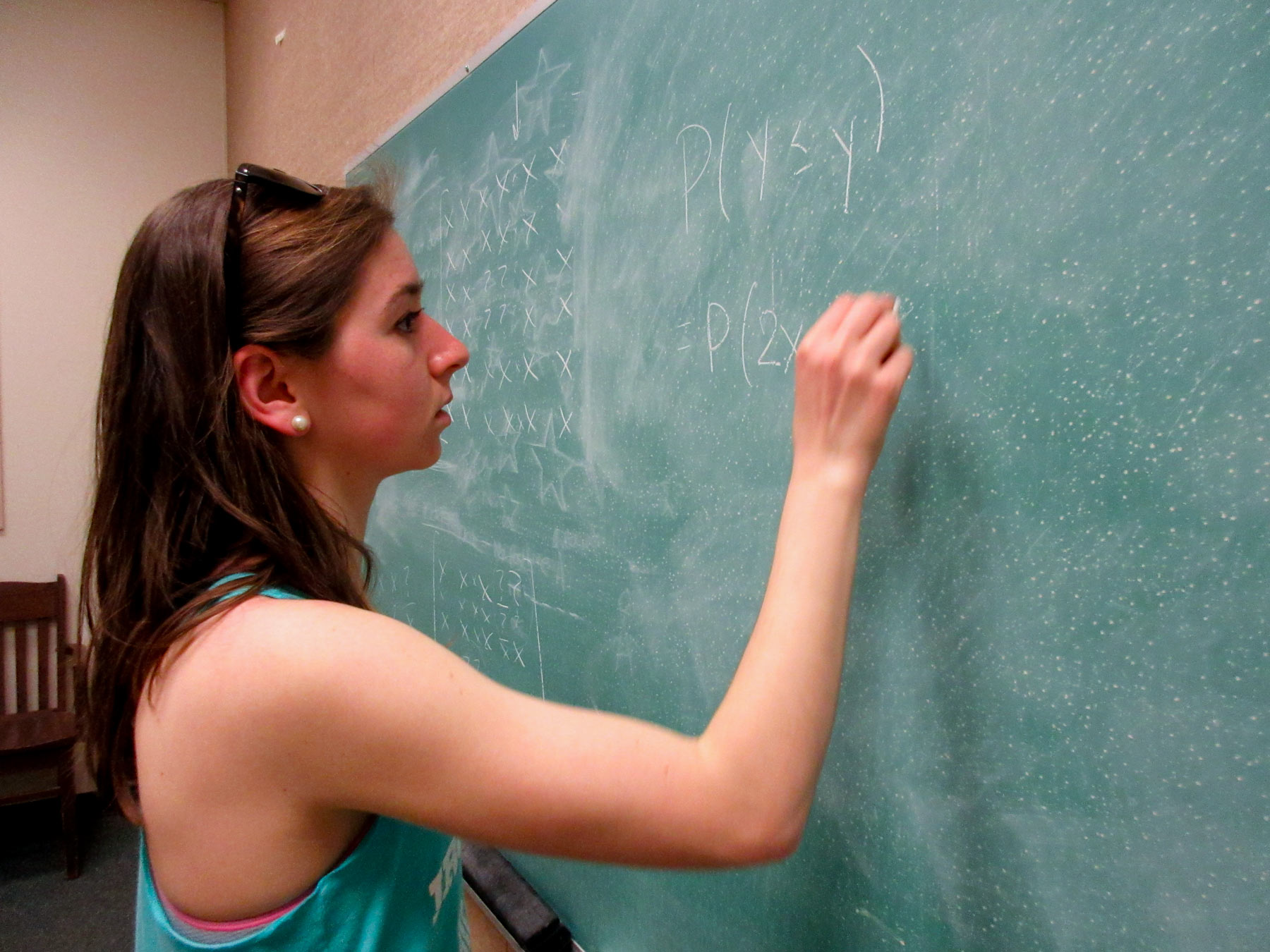
women in computer science
simulation the right prescription
Molly Atwater ’17, M.S. ’18, turned her conversations with medical professionals at a local free clinic into a simulation that resulted in benefits for the clinic — and an international award for herself.
Atwater’s analysis of Lackey Clinic in Yorktown won first place in the MODSIM World Conference Challenge Competition in 2018, the same year she finished a master’s degree in the W&M Computational Operations Research program, which incorporates mathematics and computer science, applied science and public policy.
Atwater’s project was a discrete-event simulation, a powerful tool for modeling a series of well-defined events. First she spent five or six days at the clinic, talking with doctors and nurses — many of them volunteers — about how they handle patient load.
The computer won’t tell you they need to get tablets; the computer doesn’t know that,” Atwater said. “The computer only knows the model. You know the people behind it. You know how the culture works, so you can make better suggestions.”
Her next task was to “try to convert their words into math.” Using a specialized programming language, Atwater built a computer simulation of the day, which revealed, among other things, an easily remedied redundancy to increase efficiency. The news was greeted enthusiastically by the clinic, which would not have had the capability to perform the analysis on its own.
The project is an example of the ways William & Mary students take their learning into the community while partnering and benefiting local organizations that serve citizens. And the award doesn’t hurt, either.
Bridging difference in computer science
According to the National Science Foundation, of all the science and engineering bachelor’s degrees awarded in the country between 2008 and 2014, computer science had the lowest percentage of women. It hovers around 18 percent.
That’s not the story at William & Mary, though, where women are earning computer science degrees at rates well above the national averages, by intention.
One third of all computer science degrees go to women at W&M, almost double the national average.
What we are doing clearly works. The women students are empowered. It makes them confident, so they can go out into the workforce feeling secure in themselves. That is important for them, but it’s also important for the future of the field.”
— Evgenia Smirni, S.P. Chockley Professor of Computer Science
Half of all graduating computer science minors at W&M are women.
In 2017-2018, William & Mary doubled the national average in women awarded master’s degrees in computer science, too.
Women make up 50% of computer science graduate students at William & Mary.

